How long Can Dogs go without Food and Water? Vet’s Answers in 5 mints
Have you ever wondered how long dogs can go without food and water? It’s something to think about, as we all know that our furry friends need to eat and drink regularly to stay healthy. In this blog post, we’ll explore some theories about how long dogs can last without sustenance and offer tips on ensuring your dog is constantly fed and watered. Read on for more.
How long can dogs go without food?
Dogs can go without food for longer than most people realize. A healthy adult dog can typically survive for about two weeks without food, though they will quickly begin to experience weight loss and muscle wasting.
However, it is essential to note that dogs can only go without food for this long if they have access to water. Without water, a dog will only survive for about three days.
Dogs can go without food for so long because their bodies can break down stored fat and convert it into energy. However, this process is not without its risks, and dogs who go too long without food can experience serious health problems.
If you are concerned that your dog has not eaten in a few days, it is always best to consult a veterinarian.
How long does a dog need water?
Dogs need water to stay healthy and hydrated, and the amount of water they need depends on several factors, including their size, activity level, and diet. On average, an adult dog needs around one ounce of water per pound of body weight each day.
For example, a 20-pound dog would need approximately 20 ounces of water daily. However, this is just a general guideline, and some dogs may need more or less water, depending on their needs.
For example, working dogs or dogs who exercise frequently may need more water than their sedentary counterparts.
Furthermore, dogs who eat dry food may need more water than wet food, as dry food can dehydrate.
Paying attention to your dog’s thirst levels and ensuring they have access to fresh, clean water throughout the day is essential.
How long can dogs go without food when sick?
When a dog is sick, the first question that usually comes to mind is, “How long can they go without food?” It depends on many factors, including the dog’s age, overall health, and the severity of its illness. Young puppies and elderly dogs, for example, are more likely to experience complications from an extended fast than healthy adults.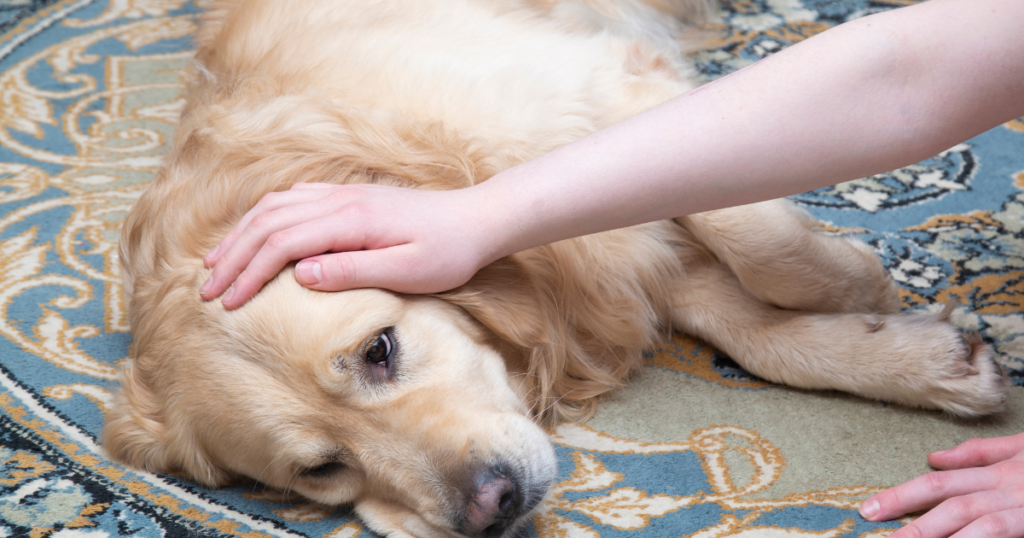
Additionally, dogs suffering from an acute illness or injury need nutrients to help them recover. In general, however, most healthy dogs can safely go without food for 24-72 hours. Of course, it’s always best to consult a veterinarian before making decisions about your dog’s care.
Why does my dog not eat his food but will eat treats?
If your dog is not eating his food but seems eager for treats, there could be a few different reasons.
In this case, try a different brand or flavour of food to see if that makes a difference. It’s also possible that your dog is experiencing some digestive issues. You should take him to the vet to rule out any medical problems if this is the case.
Finally, your dog has learned that he will only get treats when he doesn’t eat his food. In this case, you’ll need to be more consistent with his meals and ensure he doesn’t have access to treats except at mealtime.
By taking a closer look at your dog’s behaviour, you should be able to figure out why he’s not interested in his food.
How long can dogs go without eating?
Dogs, like all other mammals, need food to survive. The nutrients in food provide energy and support all of the body’s vital functions. Without a regular food supply, the body will start to break down its tissues to stay alive.
So how long can a dog go without eating? The answer depends on many factors, including the dog’s age, health, and activity level. A young, healthy dog will usually be able to survive without food for several days, but an older dog or one with health problems may only last a day or two.
Similarly, a couch potato dog will not need as much food as an active working dog. Generally, it is best to only test a dog’s limits after feeding them.
How long can a dog with cancer go without food?
Cancer is a severe illness that can significantly impact a dog’s appetite. Dogs with cancer may go off their food altogether or lose their appetite for certain types of food.
While there is no hard and fast rule about how long a dog with cancer can go without food, it is essential to consult a veterinarian if your dog stops eating or refuses to eat for more than a few days. Cancer can be a severe illness, and dogs may not have the appetite to eat because of the pain.
Cancer treatments such as chemotherapy can cause nausea and vomiting, further decreasing appetite. If your dog is not eating, it is essential to ensure they are still getting enough fluids to avoid dehydration. Your veterinarian can give you specific instructions on how to syringe feed your dog or administer IV fluids if necessary.
Finally, while cancer is a severe illness, many treatment options can help improve quality of life and extend life expectancy. If your dog has been diagnosed with cancer, discuss all available treatment options with your veterinarian.
Homemade food for dogs who don’t eat
As any pet owner knows, sometimes our furry friends can be fussy eaters. If your dog refuses to eat their food, giving them a little bit of what you’re eating can be tempting.
However, it’s important to remember that not all human food is safe for dogs. Before giving your dog any table scraps, it’s best to consult your veterinarian or do some research to ensure the food won’t harm them.
Human foods are beneficial for dogs. For example, cooked chicken is a lean protein that can be a great addition to their diet. You can also add plain yogurt to their food, which is packed with probiotics and can help digestion.
If your dog avoids their food because they’re bored, try adding peanut butter or cottage cheese. These foods are not only delicious, but they’ll also provide your dog with the nutrients they need to stay healthy.
Should I worry about my dog not eating for a week?
Generally, if your dog is not eating for more than a day, it’s cause for concern. Not eating can lead to many health problems, including liver damage, muscle loss, and decreased energy levels. If your dog has lost its appetite, there are a few possible reasons.
Maybe it’s not feeling well, or perhaps it’s simply uninterested in its food. Some dogs may also refuse to eat if they’re experiencing stress or anxiety. If your dog hasn’t eaten in a few days, it’s essential to take them to the vet to rule out any underlying medical conditions.
In most cases, losing appetite is nothing to worry about, and your dog will return to normal once they feel better.
However, if the situation persists, it’s best to err on the side of caution and have your furry friend checked out by a professional.
Dog starvation compared to Humans
A common misconception is that dogs can survive solely on meat. In reality, dogs need a balanced diet that includes carbohydrates, fat, and protein. Without these essential nutrients, dogs can experience various health problems, including muscle loss, organ damage, and even death.
Interestingly, starvation affects dogs and humans in very different ways. Whereas humans can survive for months without food, dogs typically only live for a few weeks.
That is because dogs have a higher metabolism than humans, and they burn calories much more quickly.
So, while it’s essential to ensure that your dog gets enough to eat, you don’t need to worry about their overeating.
Feeding dogs with cancer
While a cancer diagnosis is always tricky, it can be incredibly challenging for our furry friends.
Fortunately, there are several things we can do to help our dogs through this tough time, including paying close attention to their diet.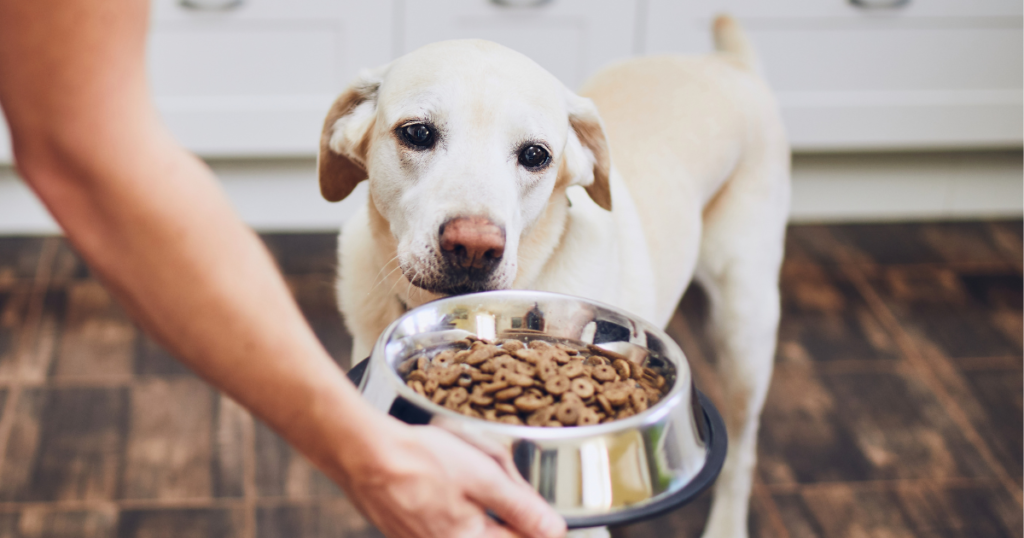
Like humans, cancer can cause a loss of appetite in dogs, so it’s important to ensure they get the nutrients they need.
However, due to the side effects of treatment, some dogs may experience nausea or vomiting.
In these cases, it’s best to consult your veterinarian to determine the best food for your dog. Some specially formulated foods can help ease these symptoms and give your dog the energy they need to fight cancer.
You can help your dog enjoy a comfortable life despite this difficult diagnosis with care and attention.
Tell me the best way to force-feed a dog that won’t Eat
If you have a dog refusing to eat, there are a few things you can do to try and get them to eat. First, it’s essential to identify why the dog is not eating. They may not have an appetite if they are sick or in pain.
In these cases, it’s best to take them to the vet to get checked out. If there is no medical reason for their lack of appetite, you can try enticing them with a favourite food. Some dogs will only eat when they’re hungry, so it may be necessary to withhold food for a day or two to increase their hunger.
Once they’re sufficiently hungry, you can offer them the food again and see if they’re willing to eat. If they still refuse, you may need to force-feed them. Can be done by inserting a syringe or feeding tube into their mouth and slowly squirting the food down their throat.
It’s important to go slowly and be careful not to choke the dog.
How long can a sick dog go without eating? (Cancer, Parvo, Etc.)
While every dog is different, most sick dogs will show signs of appetite loss after a few days without food. If your dog has been diagnosed with an illness such as cancer or parvo, it’s essential to bring them to the vet immediately.
Once there, the vet will likely recommend a course of treatment which may include medication, special diets, or supplements. In some cases, however, appetite loss can signify a more serious problem, such as organ failure.
If your dog refuses to eat for more than a few days, it’s essential to bring them to the vet so it can be appropriately diagnosed and treated.
The dog doesn’t eat but drinks water
If your dog isn’t eating but is drinking water, there could be a few different reasons for this. It’s essential to take note of other changes in your dog’s behaviour and appetite, as well as any possible changes in their environment, to help narrow down the potential causes.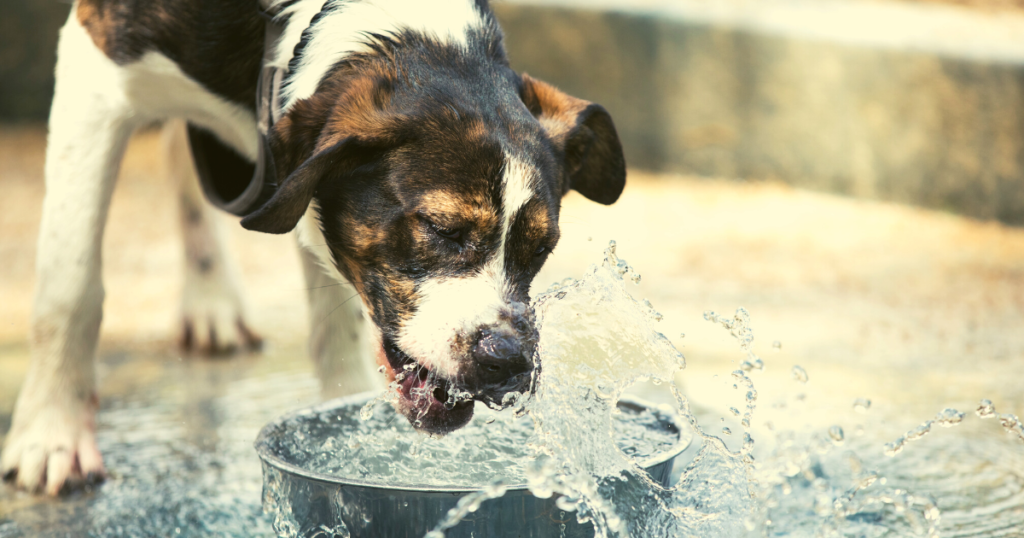
If your dog is generally healthy but isn’t interested in food, it likely does not cause concern, and you may need to try a different type of food. However, if your dog has other symptoms, such as vomiting or diarrhoea, it could be a sign of an underlying health condition, and you should take them to the vet immediately.
Various health issues can cause a loss of appetite in dogs, so it’s always best to err on the side of caution.
What happens when a dog stops eating for a long?
If a dog stops eating, it is essential to take notice and take steps to determine the cause. A prolonged lack of appetite can lead to weight loss and Muscle wasting, as well as dehydration.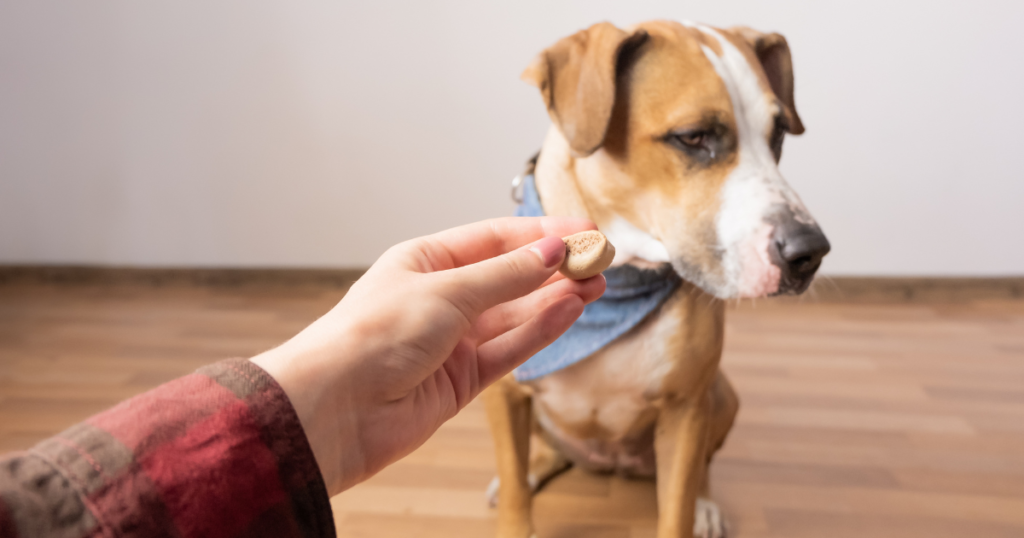
Dogs that do not eat may also suffer from constipation or gastrointestinal issues. In severe cases, a dog that stops eating can develop liver disease.
If you are concerned that your dog is not eating, you must contact your veterinarian. They will be able to help determine the cause and recommend treatment options.
How do I get my dog to eat?
If your dog is a picky eater, there are a few things you can do to try and get them to eat. One option is to mix their food with a little bit of water or broth. It can make the food more appealing and easier to eat.
Another approach is to experiment with different types of food. Some dogs prefer wet food, while others prefer dry food. You may also want to add some canned pumpkin or shredded cheese to their food. These toppings can make mealtime more enjoyable for your pup.
Finally, it’s essential to be consistent with mealtimes. Feeding your dog at the same time each day will help them develop a regular appetite. If you’re still having trouble getting your dog to eat, consult a veterinarian to see if there may be an underlying health issue.
How long can dogs go without food: Try hand feeding
One way to get your dog to eat is to try hand feeding. It involves placing food in your hand and letting your dog eat from your hand. Some dogs will be hesitant at first, but with patience and persistence, most dogs will learn to enjoy this method of eating. Hand feeding has many benefits.
It can help build the bond between you and your dog and also help slow down the eating process, which is essential for dogs who tend to gulp their food.
For example, if you want your dog to eat from a bowl instead of from the floor, you can place a piece of food in the bowl and then offer it from your hand. With some practice, they should learn that the food in their bowl is meant for them, not the floor.
So if you’re having trouble getting your dog to eat, try hand-feeding him. With a bit of patience and effort, you should be able to succeed.
How long can dogs go without food: Let him eat grass
If you’re wondering how to get your dog to eat, one solution is to let him eat grass. While it may seem strange, grass-eating is a normal behaviour for dogs.
Many experts believe that dogs consume grass to soothe their stomachs or because they lack certain nutrients in their diet.
However, if your dog eats an unhealthy amount of grass, it could indicate an underlying medical condition, and you should consult your veterinarian.
In most cases, though, there’s no need to worry if your furry friend enjoys a nibble on the lawn from time to time.
Tempt Him with a Treat
Dogs are notoriously picky eaters. Some will scarf down anything you put in front of them, while others can be picky. If your dog falls into the latter category, don’t worry – there are plenty of ways to tempt him into trying new foods.
One of the easiest methods is to offer a treat. Dogs love treats, and the smell of a delicious snack can be enough to get even the most stubborn pup to take a few bites.
Just be sure not to overdo it – too many treats can lead to weight gain.
Instead, use treats sparingly and pair them with healthy foods your dog is already familiar with,
With a bit of patience, you’ll soon have your picky eater begging for more.
How long can dogs go without food: Change His Food
One way to get your dog to eat is to change his food. If he’s eating the same food daily, he may become bored. Try mixing up his diet by buying a different brand of food or adding some wet food to his dry food.
You can add some shredded cheese or cooked chicken to his food to make it more appealing. If your dog is still not eating, it’s essential to talk to your veterinarian to rule out any underlying health problems that may be causing him to lose his appetite.
Heat His Food
If your dog refuses to eat his food, one potential solution is to heat it. It will not only make the food more fragrant, but it will also make it more palatable for your dog. While you don’t want to make the food too hot, a little warmth can go a long way in making mealtime more enjoyable for your furry friend.
To heat his food, place it in the microwave for a few seconds or put it on the stove over low heat. You may also want to add water to create a gravy-like consistency. Once the food is heated, please give it a taste before serving it to your dog to ensure it is not too hot.
If all else fails, you should consult your veterinarian to see if any underlying medical issues are causing your dog’s loss of appetite.
Appetite stimulants
Appetite stimulants can be a great way to get your dog to eat, especially if they are picky eaters or have lost their appetite for some reason. A few appetite stimulants are available, so you must talk to your vet about which would be best for your dog.
One popular option is an injectable medication that your vet can give. This type of medication works by increasing the level of a hormone called ghrelin, which is responsible for stimulating hunger. Another option is a topical gel that can apply to your dog’s gums.
This gel contains a compound called mirtazapine, which increases serotonin and norepinephrine levels, which can help stimulate appetite.
Make sure to dilute them before applying them to your dog’s skin, and always consult your vet before using any new products on your pet. With a bit of help from appetite stimulants, you should be able to get your dog eating again in no time.
Tell me the best way to contact a vet if your dog doesn’t eat
If your dog suddenly stops eating, it could indicate an underlying health condition. If you are concerned about your dog’s health, the best way to contact a vet is to call and schedule an appointment.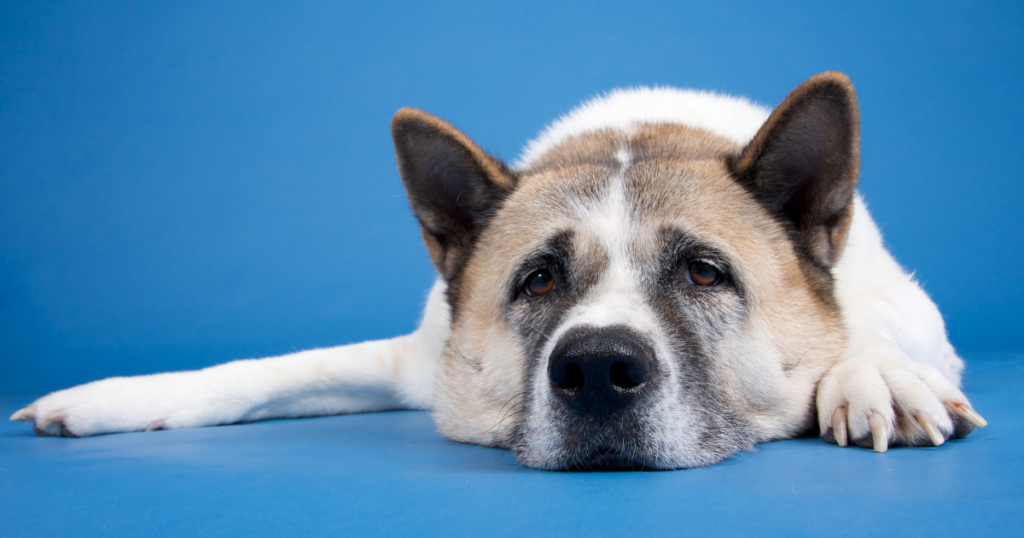
The vet will ask about your dog’s symptoms and medical history during the appointment. They will also perform a physical examination and may order blood tests or x-rays. The vet can diagnose the problem and recommend treatment based on this information.
In some cases, such as when a dog refuses food due to anxiety or stress, there may not be any underlying medical condition. In these cases, the vet can advise how to encourage your dog to eat.
What to Expect at the Vet?
When you take your dog to the vet, the vet will likely perform a physical examination and recommend some blood tests. The vet will also ask you about your dog’s diet and any changes in appetite. If the vet suspects a medical problem, they may refer you to a specialist.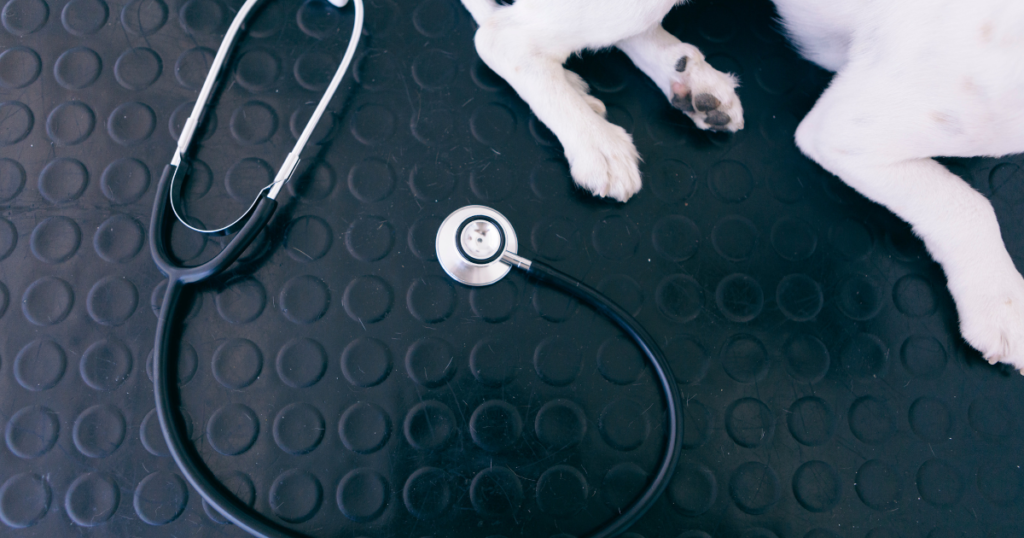
Sometimes, a phone call is the best way to contact a vet. Many vets offer advice lines that you can call for help with your dog’s health problem.
When reaching out to a vet, have your dog’s information handy, including age, breed, weight, and other relevant medical histories. The more information you can provide, the better the vet will be able to help.
Why does your dog not eat?
One of the most frustrating things for a pet owner is when their dog refuses to eat. It can signify something is wrong, but it can also be challenging to figure out the underlying cause. If your dog suddenly stops eating, it’s essential to take note of any other changes in behaviour or appetite.
Other possible causes of loss of appetite in dogs include pain, anxiety, stress, changes in routine, dental problems, and digestive issues. If your dog is showing other signs of ill health, such as lethargy or vomiting, it’s best to consult a veterinarian.
Otherwise, try to identify potential stress or anxiety causes and adjust accordingly. With patience and trial and error, you should be able to get your dog back on track.
How long can dogs go without food: Depression
Depression is a significant problem for dogs, just like humans. Depression in dogs can occur due to many different things. Including a change in routine, the loss of a loved one, or even boredom.
Symptoms of depression in dogs include a loss of appetite, lethargy, and difficulty sleeping. If your dog shows any of these signs, it’s essential to take it to the vet to rule out any underlying medical causes. Depression is a severe condition that can lead to weight loss, behaviour problems, and even self-harm in extreme cases.
If your dog is diagnosed with depression, many treatment options are available, including medication, behavioral therapy, and changes to his diet and exercise routine. With proper treatment, most dogs can recover from depression and live happy and healthy lives.
Common medical issues
Common medical issues are a leading cause of dogs not eating. If your dog is not eating, it could be because of an underlying medical issue. Some common medical problems that can cause dogs to lose their appetite include kidney disease, liver disease, cancer, and digestive issues.
If your dog is not eating and you think it may be due to a medical problem, take them to the vet for an examination. The vet can rule out potential medical causes and recommend the best treatment.
How long can dogs go without food: Anxiety
Anxiety is a common problem for dogs and can manifest in many ways. If your dog is suddenly not interested in food, it’s essential to take it to the vet to rule out any medical causes.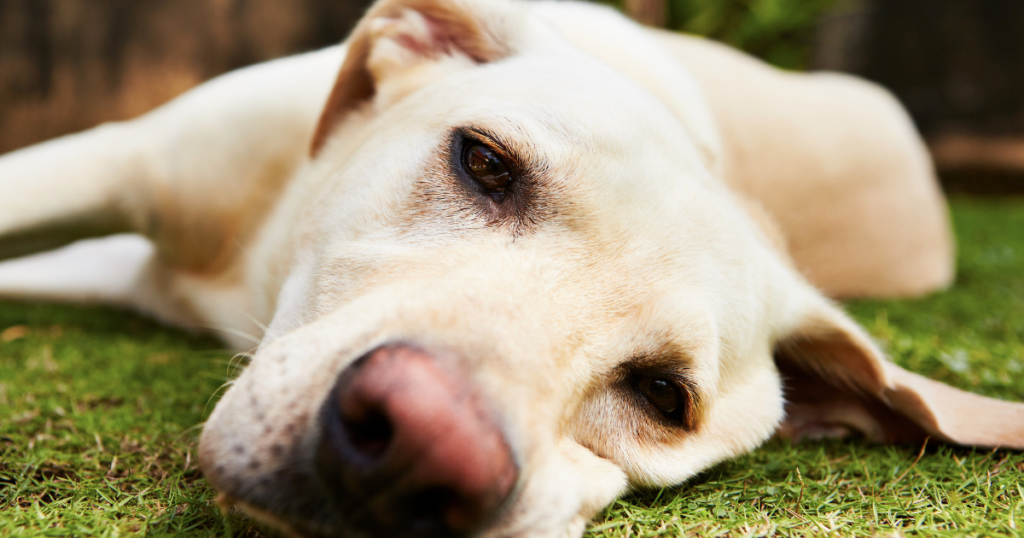
Once you’ve ruled out an underlying health problem, you can begin to address your dog’s anxiety. You are providing more opportunities for mental stimulation. With patience and persistence, you can help your dog overcome his Anxiety and regain his appetite.
Medication side effects
Medication side effects are a common reason why dogs may not eat. Both prescription and over-the-counter medications can cause gastrointestinal upset, including nausea and vomiting.
Other side effects that can cause dogs not to eat include appetite loss, fatigue, and diarrhoea. If your dog is on medication and not eating, talk to your veterinarian about potential side effects and how to best manage them.
Medications can often be adjusted or changed to help minimize side effects and ensure your dog stays healthy and happy.
How long can a dog go without eating?
While every dog is different, most healthy dogs can go for about three to five days without food. However, this should not be attempted without vet supervision, as many health risks are involved.
For example, hypoglycemia – low blood sugar – is a common complication in dogs who haven’t eaten for a while and can lead to seizures or even coma. Additionally, dehydration is a serious concern, as it can cause organ damage.
As a result, it’s always best to consult with a veterinarian before attempting to withhold food from your dog.
Do you think it’s possible?
Do you think a dog can go without eating? The answer may surprise you. While it’s certainly not something that any pet owner would want to see their furry friend go through, the fact is that dogs can survive for quite some time without food.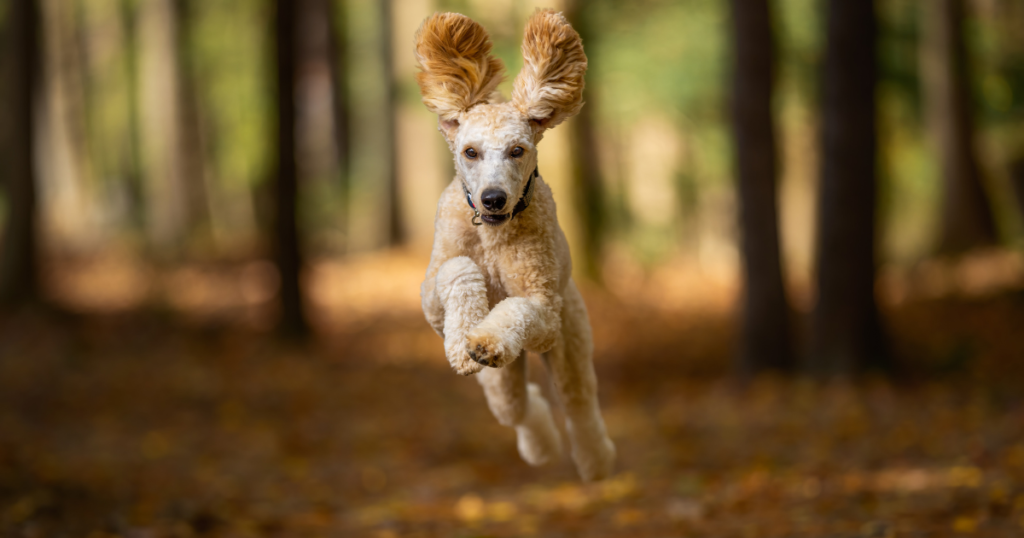
In most cases, a healthy adult dog can go for two or three weeks without eating before starting to experience serious health problems. Of course, this assumes that the dog has access to water and isn’t expending too much energy. On the other hand, puppies and senior dogs can only go a few days without food before they start to deteriorate. So while a dog can survive without food, it’s not ideal.
Consult your veterinarian if your dog goes without eating for more than a day or two.
The exception – sick dogs or small-breed puppies
Most healthy adult dogs can go without food for up to two weeks, although they will start to lose weight after a few days. The exception to this rule is sick dogs or small-breed puppies, which may need to eat more often. When a dog goes without food, the body starts to break down fat for energy.
This process can lead to a build-up of toxins in the blood, which can be dangerous if not monitored closely. However, as long as the dog has access to fresh water, it is unlikely to suffer serious health problems.
Generally, it is best to consult a veterinarian before changing your dog’s diet.
How long can dogs go without water?
How long a dog can go without food or water depends on many factors, including its size, age, and activity level. A small dog will need to eat more often than a large dog, and a puppy will need to eat more often than an adult.
In general, however, most dogs can go without food for about three days, while they can only go without water for about two days. Of course, these are just averages – some dogs may be able to go longer without food or water, while others may need to eat or drink more frequently. If you’re ever concerned about your dog’s health, it’s always best to consult a veterinarian.
Don’t worry about missing a single meal
Don’t worry about missing a single meal. Your dog will be just fine. Dogs can go without food for much longer than we are. While the exact time depends on various factors, such as age, breed, and activity level, most healthy dogs can survive for about three weeks without food.
Of course, this doesn’t mean that you should regularly skip meals or go for long periods without feeding your dog. Dogs need nutrients from food to stay healthy, and going without food for too long can lead to serious health problems. However, if you accidentally forget to feed your dog one day, don’t panic. They’ll be hungry, but they’ll be just fine.
How do I feed a sick dog?
When your dog is sick, it’s essential to ensure they get the nutrients they need to recover. However, this can be a challenge if your dog loses its appetite. Here are a few tips for feeding a sick dog:
– If your dog is showing no interest in food, try offering small meals more often throughout the day.
– Choose a food high in protein and calories to help your dog regain strength.
– Add some water to their food to make it easier to eat.
-Encourage your dog to eat by hand-feeding them their favourite treats.
You can ensure your sick dog gets the nutrition they need with patience and creativity.
Give your dog a treat
When your dog is sick, the last thing you want to do is force them to eat. However, it is essential to ensure they stay hydrated and get the nutrients they need to recover.
One way to do this is to give them a treat packed with nutrients. Many healthful dog treats are available, so you can find one that your dog will love. Another option is to mix some wet food with their regular dry food. It can make it more appealing and easier to eat. If your dog is still not interested in eating, consult your vet for other options.
How long can dogs go without food: Use a syringe
If your dog is sick, you may need to give them medicine using a syringe. It can be a difficult task, as dogs often resist taking medication. However, you can do a few things to make the process easier.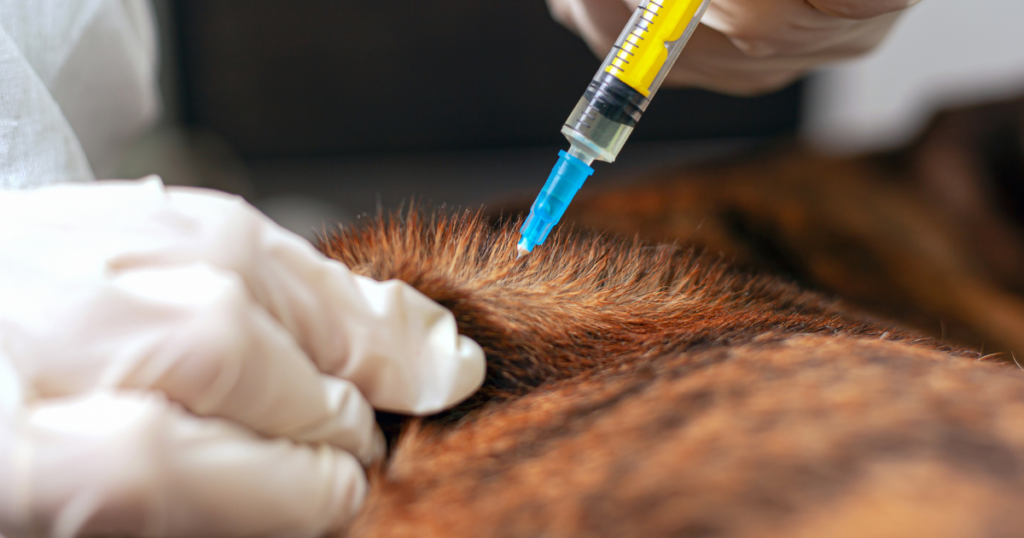
First, it is essential to choose a suitable size syringe. Your dog may choke on the medicine if the needle is too large. If it is too small, the drug cannot flow through properly.
Second, make sure the syringe is clean and free of any debris. It will help to prevent your dog from getting an infection.
Finally, fill the syringe with the correct medicine before giving it to your dog. These tips will help you successfully feed your sick dog with a needle.
How long can dogs go without food: Wait
When your dog falls ill, it can be a worrying time. You may feel helpless and unsure of what to do, but it is essential to remain calm. The first step is to wait and see if your dog’s condition improves. You should take your dog to the vet if they are still sick after a day or two.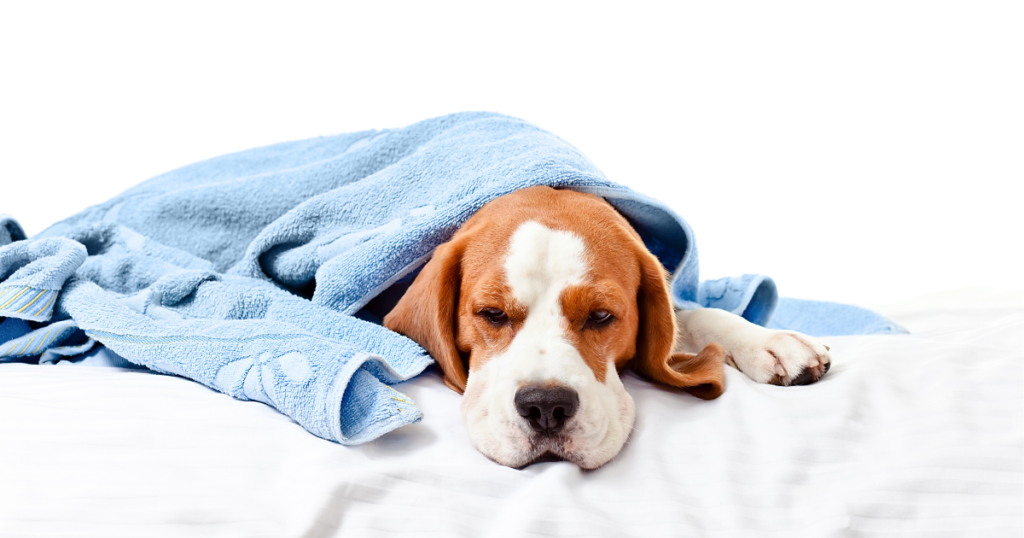
In the meantime, you will need to provide your dog with the proper nutrition to help them recover. It means feeding them smaller meals more often than usual and avoiding foods high in fat or sugar. You should also ensure they have access to fresh water at all times. By following these simple steps, you can help your sick dog get on the road to recovery.
Stimulate your dog’s appetite
One of the most important things you can do for a sick dog is stimulated your dog’s appetite. A loss of appetite is often one of the first signs that something is wrong, and it can indicate a wide range of health problems.
If your dog is off their food, it’s essential to Stimulate your dog’s appetite as soon as possible. One way to do this is to offer small, frequent meals of their favorite foods. You can also try adding some wet or chicken broth to dry food to make it more appealing.
In some cases, your veterinarian may prescribe an appetite stimulant. By Stimulating your dog’s appetite, you’ll help them get the nutrients they need to recover from illness.
Let your Dog Eat Grass
If your dog is sick, you may wonder what you can do to help them feel better. One simple remedy is to let them eat grass. While it may seem strange, grass-eating is an instinct for dogs, and it can help settle their stomachs and relieve nausea.
If your dog isn’t interested in grass, you can try offering them a small handful of fresh leaves or grinding up dried herb leaves and mixing them into their food. Some good options include mint, basil, oregano, or ginger. Be sure to talk to your veterinarian first to ensure that the herbs you’ve chosen are safe for your dog. You can help your sick dog feel better quickly with a bit of care and attention.
Read the Instructions on Any Medication
If your dog is sick, it’s essential to follow the instructions on any medications that have been prescribed. It will help ensure your dog gets the proper dosage and doesn’t experience any adverse reactions. When giving your dog medication, use a syringe or pill dispenser rather than just pouring it into their mouth.
It will help you avoid accidentally giving them too much or too little. It’s also essential to monitor your dog closely after giving them medication, as some side effects can occur quickly. If you’re unsure how to present your dog’s medication properly, ask your veterinarian for help. They will be able to show you precisely what to do and answer any questions you may have.
Bring your dog to the vet
If your dog is sick, the first thing you should do is bring them to the vet. The vet can examine your dog and determine the best course of treatment. In some cases, the vet may prescribe medication or exceptional food. If your dog is simply not eating well, there are a few things you can do to encourage them to eat.
First, try offering small meals more often throughout the day. You can also try adding some wet food or broth to their dry food to make it more appealing.
Finally, ensure their food is easily accessible and in a quiet location. Please get in touch with your vet for additional advice if your dog is still not eating.
Heat Your Dog’s Food
When your dog is sick, the last thing they want is to eat. But it’s essential to ensure they get the nutrients they need to improve. One way to do this is to heat their food. It will make it more aromatic and tasty, and the warmth can also soothe a sore throat.
You can either microwave their food for a minute or two or heat it on the stove. Just cook it sparingly, as this can make it less palatable. If your dog struggles to eat, you can also try pureeing its food or adding some broth to make it easier to swallow. With a little effort, you can help ensure that your sick dog gets the nutrition they need.
Hand-feed your dog
When your pet is sick, the last thing you want to do is force them to eat. However, ensuring they get the nutrients they need to recover is essential. The best way to do this is to hand-feed your dog. Start by offering them small amounts of food at a time. If they’re not interested, don’t worry. Just try again later. Once they start eating, you can gradually increase the food you’re giving them. Hand feeding is a great way to bond with your pet and show them that you care. It’s also an effective way to ensure they get the nutrition they need to improve.
Change Dry Food Brands
If your dog is sick, the first thing you should do is change its food. Dry food brands have different ingredients; some may be better for your dog’s health than others.
It would be best if you also looked for a high protein content brand, as this will help your dog recover from its illness. If you still need to decide which brand to choose, speak to your veterinarian. They can advise you on the best food for your sick dog.
Add Broth to Your Dog’s Food
When your dog is sick, the last thing they want is to eat. Their appetite decreases, and they may refuse to eat altogether. However, it’s essential to ensure they’re getting the nutrients they need, so adding broth to their food can be a helpful way to get them to eat.
The added moisture and flavour can help increase their appetite and make them more willing to eat. Plus, the nutrients in the broth will help them recover from their illness. Just be sure to use a low-sodium broth, so you don’t further upset their stomach. With a bit of coaxing, you should be able to get your pup to eat and start feeling better in no time.
What should I do if my dog won’t eat?
If your dog suddenly stops eating, it can cause concern. Dogs typically have a hearty appetite, and a loss of appetite can indicate an underlying health problem.
If your dog refuses to eat, you should check with your veterinarian to rule out any medical causes. If there is no medical reason for your dog’s loss of appetite, there are a few things you can try to encourage them to eat.
One option is to change their food to a more appealing brand or flavour. You can also try adding some wet or gravy to their dry food to make it more enticing. Some dogs also enjoy homemade meals, so you can prepare a simple dish of boiled chicken and rice. If your dog doesn’t eat, you must continue offering food and water and consult your veterinarian for further advice.
Don’t panic
Don’t panic if your dog suddenly stops eating. While it may be alarming initially, there are many potential reasons why your dog might go off its food. It could be that your dog is bored with its current diet and needs some variety.
Alternatively, your dog might feel under the weather and lack appetite. If this is the case, it’s worth taking your dog to the vet for a check-up. If your dog is otherwise healthy but isn’t interested in food, try to tempt them with some of their favourite foods or a special treat. With patience and perseverance, you should eventually be able to get your furry friend back on track.
Try to tempt your dog with a favourite food or treat
If your dog suddenly stops eating, it can cause concern. There are many possible reasons why your dog might lose its appetite, from illness to stress. If you’re worried about your dog’s health, the best thing to do is to take them to the vet for a check-up.
In the meantime, you can try a few things to get your dog to eat. One is to tempt them with their favorite food or treat. Most dogs have a favorite type of food, and offering them a small amount may be enough to get them interested in eating again. Another option is adding some wet or gravy to their dry food. It can make the food more appealing and encourage them to eat.
Finally, make sure that you’re adequately feeding your dog. Some dogs will only eat when they’re starving, so offer smaller meals more often throughout the day. With patience and trial and error, you should be able to get your dog eating again in no time.
Tell me the reason your dog stopped eating
If your dog has always been a hearty eater but suddenly stops eating. It’s essential to take note of any other changes in behaviour or appearance. Has your dog been vomiting? Are there any changes in energy levels or bathroom habits? Any of these could be signs of a more serious health problem.
If your dog won’t eat and you’re concerned, the best action is to take them to the vet for a check-up. The vet will be able to assess your dog’s overall health and identify any potential causes of its loss of appetite. Most dogs will regain their appetite and return to their usual selves with treatment.
Tell me the best food for a sick Dog.
There are many possible reasons a dog might lose its appetite, ranging from digestive problems to dental disease. If your dog has always been a hearty eater but suddenly stops eating, it’s essential to take note of any other changes in behavior or appearance.
Has your dog been vomiting? Are there any changes in energy levels or bathroom habits? Any of these could be signs of a more serious health problem. If your dog won’t eat and you’re concerned, the best action is to take them to the vet for a check-up.
The vet will be able to assess your dog’s overall health and identify any potential causes of its loss of appetite. Most dogs will regain their appetite and return to their usual selves with treatment.
Baby food
My dog stopped eating her food a few weeks ago, and I was worried. I tried everything from different types of food to supplements, but nothing worked. I even took her to the vet, but they couldn’t figure out what was wrong.
Eventually, I realized that she would only eat baby food. So, I started feeding her jars of mashed-up fruits and vegetables, and she’s been doing great ever since. I’m still trying to figure out why she stopped eating her regular food, but at least I found something that works for her. Baby food may not be ideal for a long-term solution, but it’s better than nothing. Thanks for asking.
How long can dogs go without food: Wet food
There are a few reasons your dog may have stopped eating wet food. Wet food can spoil faster than dry food, so the food you’re giving them may no longer be fresh.
Wet food can also be more challenging to digest than dry food, so if your dog is having trouble digesting it, it may not get the nutrients they need. Finally, some dogs prefer dry food to wet food and may be less interested in eating wet food. If any of these are why your dog has stopped eating wet food, try switching to dry food and see if that makes a difference.
How long can dogs go without food: Bone Broth
Bone broth is a nutrient-rich food that can benefit dogs who are not eating. Simmering bones make bone broth in water for an extended period, which allows the nutrients to leach into the broth. Bone broth is high in protein and minerals and contains collagen, which can help heal the gastrointestinal tract.
Bone broth is easy to make at home or can be purchased at most health food stores. If your dog has stopped eating, Bone Broth may be an excellent option to help them get the necessary nutrients.
Chicken Broth
Chicken broth is a popular home remedy for a dog who has lost its appetite. The broth is often fed to the dog directly from a spoon. Chicken broth is packed with nutrients and calories, which can help a dog that is not eating much maintain its strength.
The broth can also make other foods more appealing to a picky eater. For example, adding some chicken broth to dry food can make it more moist and flavorful, which may entice a dog to eat. Chicken broth is a simple and effective way to give your dog the nutrition they need when they are not eating well.
How long can dogs go without food: Depression
Depression is a significant problem for dogs, just like humans.
Symptoms of depression in dogs include a loss of appetite, lethargy, and difficulty sleeping. If your dog shows any of these signs, it’s essential to take it to the vet to rule out any underlying medical causes. Depression is a severe condition that can lead to weight loss, behavior problems, and even self-harm in extreme cases.
If your dog is diagnosed with depression, many treatment options are available, including medication, behavioral therapy, and changes to his diet and exercise routine. With proper treatment, most dogs can recover from depression and live happy and healthy lives.
Common medical issues
Common medical issues are a leading cause of dogs not eating. If your dog is not eating, it could be because of an underlying medical issue. Some common medical problems that can cause dogs to lose their appetite include kidney disease, liver disease, cancer, and digestive issues.
If your dog is not eating and you think it may be due to a medical problem, take them to the vet for an examination. The vet can rule out potential medical causes and recommend the best treatment.
How long can dogs go without food: Anxiety
Anxiety is a common problem for dogs and can manifest in many ways. If your dog is suddenly not interested in food, it’s essential to take it to the vet to rule out any medical causes.
Once you’ve ruled out an underlying health problem, you can begin to address your dog’s anxiety. It may involve changing diet, increasing exercise, and providing more opportunities for mental stimulation. With patience and persistence, you can help your dog overcome his Anxiety and regain his appetite.
Medication side effects
Medication side effects are a common reason why dogs may not eat. Both prescription and over-the-counter medications can cause gastrointestinal upset, including nausea and vomiting. It is often the reason why dogs may not eat when taking medication.
Other side effects that can cause dogs not to eat include appetite loss, fatigue, and diarrhoea. If your dog is on medication and not eating, talk to your veterinarian about potential side effects and how to best manage them.
Medications can often be adjusted or changed to help minimize side effects and ensure your dog stays healthy and happy.
How long can a dog go without eating?
While every dog is different, most healthy dogs can go for about three to five days without food. However, this should not be attempted without vet supervision, as some health risks are involved.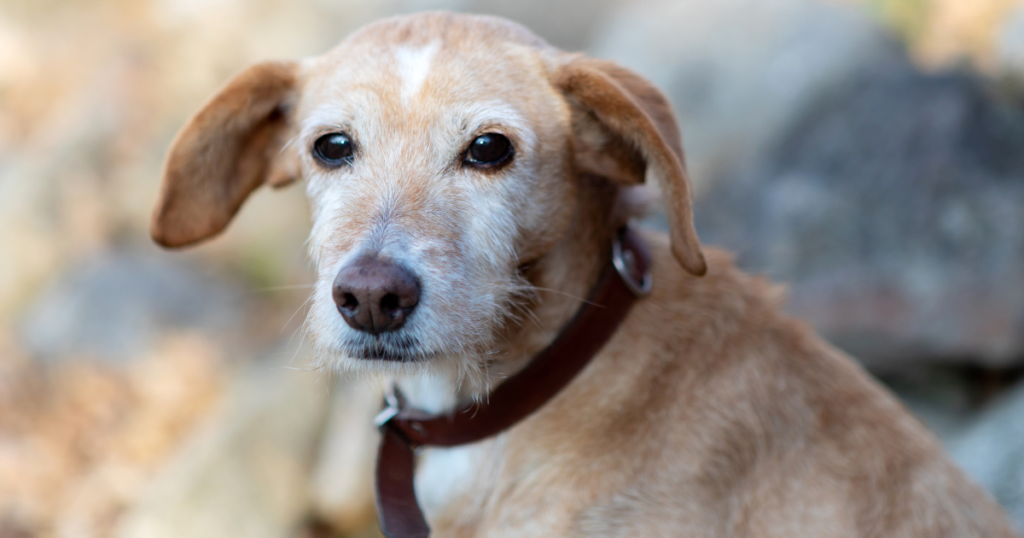
For example, hypoglycemia – low blood sugar – is a common complication in dogs who haven’t eaten for a while and can lead to seizures or even coma. Additionally, dehydration is a serious concern, as it can cause organ damage.
As a result, it’s always best to consult with a veterinarian before attempting to withhold food from your dog.
Do you think it’s possible?
Do you think a dog can go without eating? The answer may surprise you. While it’s certainly not something that any pet owner would want to see their furry friend go through, the fact is that dogs can survive for quite some time without food.
In most cases, a healthy adult dog can go for two or three weeks without eating before starting to experience serious health problems. Of course, this assumes that the dog has access to water and isn’t expending too much energy. On the other hand, puppies and senior dogs can only go a few days without food before they start to deteriorate. So while a dog can survive without food, it’s not ideal.
Consult your veterinarian if your dog goes without eating for more than a day or two.
The exception – sick dogs or small-breed puppies
Most healthy adult dogs can go without food for up to two weeks, although they will start to lose weight after a few days. The exception to this rule is sick dogs or small-breed puppies, which may need to eat more often. When a dog goes without food, the body starts to break down fat for energy.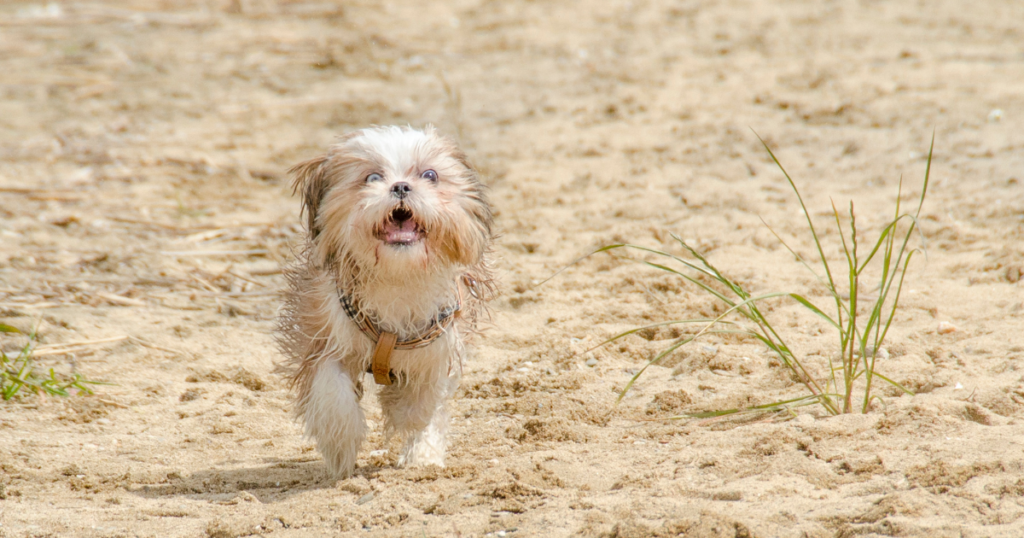
This process can lead to a build-up of toxins in the blood, which can be dangerous if not monitored closely. However, as long as the dog has access to fresh water, it is unlikely to suffer serious health problems.
Generally, it is best to consult a veterinarian before changing your dog’s diet.
How long can dogs go without water?
How long a dog can go without food or water depends on many factors, including its size, age, and activity level. A small dog will need to eat more often than a large dog, and a puppy will need to eat more often than an adult.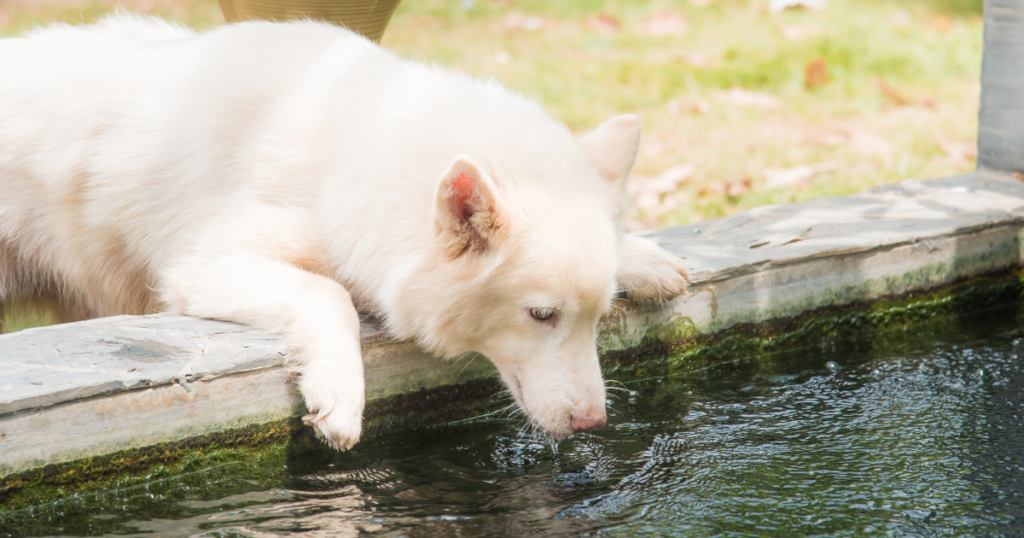
In general, however, most dogs can go without food for about three days, while they can only go without water for about two days. Of course, these are just averages – some dogs may be able to go longer without food or water, while others may need to eat or drink more frequently. If you’re ever concerned about your dog’s health, it’s always best to consult a veterinarian.
What to do when your dog refuses food?
It can be worrying when your dog suddenly stops eating. But there are a few things you can do to try and encourage them to eat. First, check that there is nothing wrong with their food. If it is past its expiration date or stored incorrectly, it may have spoiled and lost its appeal.
You should also ensure their clean food dish – a build-up of old food or dirt can make even the most delicious meal unappetizing. If there is nothing wrong with their food, try changing their routine a bit.
Dogs can get bored eating the same thing day after day, so try adding new toys or treats to their meals. You can also try feeding them at different times of the day or in other locations. If your dog isn’t eating, it’s essential to bring them to the vet to rule out any underlying health problems. With patience and experimentation, your furry friend will soon return to their usual self.
Create a calm environment
One of the most frustrating things that can happen as a pet owner is when your dog suddenly loses its appetite. Not only is it worrying to see your furry friend go without food, but it can also be challenging to determine the cause of the problem.
In many cases, the best action is simply creating a calm environment and letting your dog’s natural appetite return. It means avoiding stressful situations, such as loud noises or crowded places, and following a regular feeding schedule. Try to feed your dog in its own space, away from other animals or children.
Once your dog starts eating again, monitor its food intake and watch for any other changes in behavior. If the problem persists, consult a veterinarian to rule out any underlying medical conditions.
Stop feeding treats
When your dog refuses food, the first thing you should do is stop feeding treats. It’s essential to be consistent with your dog’s meals, and if you continue to give them treats when they refuse their regular food, they will learn that it can be picky about what they eat.
If you Stop feeding treats, your dog will be more likely to eat their regular food. You may also want to try different types of food, such as wet or dry food. Some dogs prefer wet food because it smells stronger, while others prefer dry food because it’s easier to eat. If you’re unsure what food your dog likes, you can ask your vet for advice.
Lastly, ensure you’re feeding your dog the right amount of food.
Talk to your vet about how much food your dog should eat and how often you should feed them. Following these tips, your dog can start eating their regular food again.
Possible reasons why your dog has lost their appetite
A loss of appetite in dogs can worry for pet owners, as it can be a sign of underlying health problems. However, there are several potential causes of loss of appetite in dogs, and not all of them are serious. Your dog may be bored with their food or experiencing stress due to a change in its routine.
Dogs can also lose their appetite if they are not feeling well, either because they are suffering from an illness or in pain. If your dog has lost their need and you are concerned, it is always best to speak to your veterinarian for advice. They can rule out any underlying health problems and recommend the best course of treatment.
How long can dogs go without food: Fussy eater
If your dog is usually a voracious eater but has recently lost its appetite, there could be several reasons behind this sudden change. One possibility is that your dog is simply fussy and may have become bored with its food.
Try mixing things up by adding new flavors or textures to your meals. You can also try feedings smaller meals more often throughout the day. Another possibility is that your dog is experiencing some digestive upset, such as an upset stomach or diarrhea.
If you suspect this may be the case, you should consult your veterinarian for advice on how to proceed. Lastly, some dogs may lose their appetite due to stress or anxiety. If your dog seems unusually stressed or anxious, consider trying a calming supplement or CBD product designed for dogs.
By understanding the possible reasons behind your dog’s loss of appetite, you are better equipped to help them get back to their usual selves in no time.
Depression/Separation Anxiety
Depression and separation anxiety are possible reasons your dog has lost their appetite. Depression is a common psychological disorder affecting people of all ages, including dogs. Depression is characterized by persistent sadness, loss of interest in activities, and fatigue. Dogs with depression may also have a decreased appetite.
Separation anxiety is another possible reason for a decrease in appetite. It is estimated that 14% of dogs suffer from separation anxiety, which is a condition that causes them to feel anxious when they are away from their owner.
Dogs with separation anxiety may also have trouble sleeping, bark excessively, and urinate or defecate indoors. If your dog displays any of these symptoms, it may suffer from separation anxiety.
If you think your dog may suffer from depression or separation anxiety, make an appointment with your veterinarian. They will be able to provide you with the resources you need to help your dog through this difficult time.
Dental Illness
Dental illness is one possible reason why your dog has lost their appetite. Poor dental health can make it painful for your dog to eat, and they may not get the nutrition they need if they avoid food.
Dental disease is also one of the dogs’ most common health problems, so it’s worth taking your dog to the vet to rule out any other potential causes of their appetite loss. If dental disease is the cause, your vet will likely recommend a teeth cleaning and may also suggest exceptional food or supplements to help improve your dog’s dental health.
How long can dogs go without food: Illness
Illness is one of the most common reasons why dogs lose their appetite. If your dog suddenly stops eating, it’s essential to take them to the vet immediately. Loss of appetite can be a symptom of many illnesses, ranging from minor infections to more severe conditions like cancer.
Sometimes, loss of appetite may be due to pain or discomfort. For example, a dog with arthritis may not want to eat because it hurts to stand and eat food. Illness can also cause changes in a dog’s sense of smell, making food less appealing. If your dog seems uninterested in its food, it’s always best to have them checked out by a vet to rule out any underlying health problems.
Food allergies/poisoning
Your dog has lost their appetite due to food allergies or poisoning. If your dog has been exposed to something they are allergic to, or if they have ingested something poisonous, it can cause them to lose their appetite.
Allergies can be caused by various things, including certain foods, environmental factors, and even some medications. Poisoning can also be caused by multiple items, including household chemicals, plants, and even some types of food. If you suspect your dog has an allergy or has been poisoned, it is essential to seek professional medical help immediately.
How long can dogs go without food: Vaccination
Vaccinations are an essential part of keeping your dog healthy, but they can also be a common cause of appetite loss. When a dog is vaccinated, its body mounts an immune response to the foreign agent in the vaccine. This response can sometimes result in mild side effects, such as losing appetite.
The side effects are usually temporary and will resolve within a few days. However, if your dog’s appetite doesn’t return to normal after a few days, or if they seem to be in pain or limp, it’s essential to contact your veterinarian.
Vaccinations are an essential part of preventative care for dogs, but it’s important to be aware of the potential side effects so that you can keep an eye on your dog for any signs of discomfort.
Change in the environment
Change can be challenging for anyone, even our furry friends. If your dog has recently lost their appetite, it could be due to a change in its environment. It could be anything from a move to a new house to a new baby in the family.
Just like us, dogs can get anxious and stressed in new situations. If this is the case, try to create a calm environment for your dog and ensure they have plenty of time to adjust. Consider consulting with your vet to rule out any other possible causes of loss of appetite. Your dog should soon return to its old self with time and patience.
When should I contact my vet?
Regarding your pet’s health, it’s always better to err on caution. If something is wrong, it’s best to contact your veterinarian and explain the situation. They can then give you their professional opinion and let you know if you need to bring your pet in for an examination.
That said, there are some situations where it’s worth contacting your vet immediately. For example, if your pet is having difficulty breathing, is vomiting, has diarrhea, or has sustained a severe injury, these are all signs that something could be seriously wrong, and prompt medical attention is needed.
In short, if you’re ever unsure whether to contact your vet, it’s always better to err on the side of caution and give them a call.
Warning Signs of Dehydration
Dehydration can occur when you lose more fluid than you take in, and it can have severe consequences if left untreated. Early warning signs of dehydration include thirst, dark-coloured urine, fatigue, and dizziness if you experience any of these symptoms.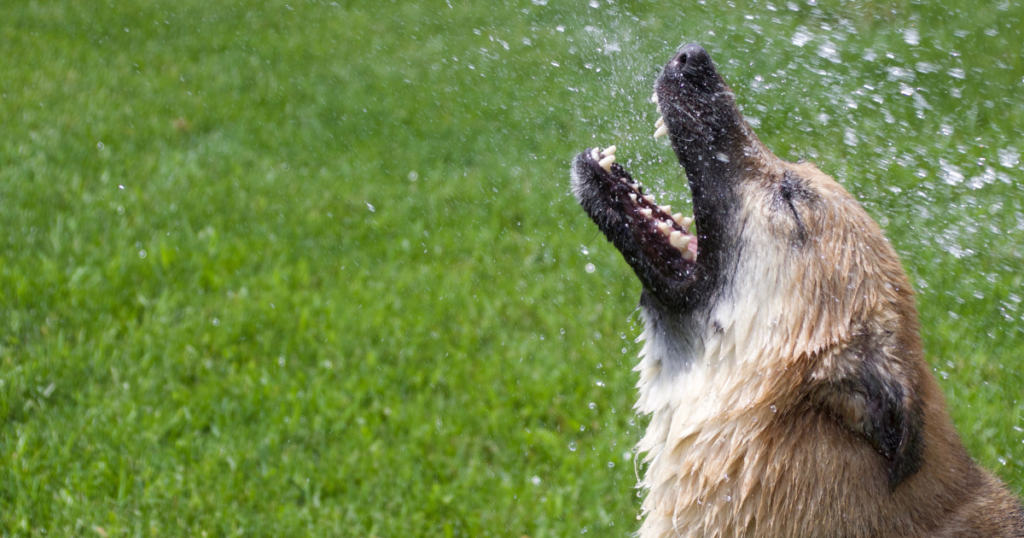
Increasing your fluid intake and ensuring you drink plenty of water throughout the day is essential. More severe cases of dehydration can cause confusion, fainting, and seizures. If you or someone you know is experiencing these symptoms, it’s necessary to seek medical help immediately.
Dehydration is a severe condition that should not take lightly. By being aware of the early warning signs, you can ensure you stay hydrated and avoid serious health complications.
How long can dogs go without food: Excessive panting
Excessive panting is one of the warning signs of dehydration. If your dog is panting excessively, it could be a sign that it is not getting enough water and is in danger of dehydration. Dehydration can occur when a dog does not have access to fresh water, has been sick or exercising vigorously, and has lost a lot of fluids.
Signs of dehydration include excessive panting, lethargy, sunken eyes, dry mouth, and sticky gums. If you notice any of these signs, it’s essential to take action immediately and give your dog plenty of fresh water. Dehydration can quickly lead to serious health problems, so it’s best to avoid caution and give your dog plenty of fluids if you’re concerned.
Reduced Appetite
Reduced appetite is one of the warning signs of dehydration. When you’re dehydrated, your body doesn’t have enough fluid to function correctly, which can lead to Reduced appetite. In addition to reduced appetite, other warning signs of dehydration include fatigue, dizziness, headache, and increased thirst.
If you experience any of these symptoms, it’s essential to drink more fluids and seek medical help if the symptoms persist. Dehydration can be dangerous, so it’s necessary to be aware of the warning signs and take steps to prevent it.
How long can dogs go without food: Sunken Eyes
Sunken eyes are one of the most common and easily recognizable signs of dehydration. When the body lacks fluids, the skin around the eyes begins to sag and appear sunken because the fluid levels in the body do not correctly support the tissues.
Sunken eyes can also accompany other symptoms, such as fatigue, dizziness, and a dry mouth. If you notice any of these symptoms, it’s essential to drink plenty of fluids and seek medical attention if necessary. Dehydration can be extremely dangerous, so it’s vital to know the warning signs and take steps to stay hydrated.
How long can dogs go without food: Lethargy
Lethargy is one of the most common warning signs of dehydration. Lethargy is a state of exhaustion and listlessness, and various factors, including dehydration, can cause it. When the body is dehydrated, it doesn’t have enough fluids to function correctly, leading to fatigue, dizziness, and even fainting.
If you are feeling lethargic, it’s essential to drink plenty of fluids and rest until you feel better. Many things can cause dehydration, including not drinking enough water, sweating excessively, vomiting, or having diarrhea. If you are dehydrated, your urine will likely be dark yellow or brown.
Lethargy is often the first sign of dehydration, so if you feel tired and sluggish, drink plenty of fluids and seek medical attention if necessary.
Factors in How long can Dogs go without food?
How long a dog can survive without food depends on several factors. The most important factor is the dog’s size. Smaller dogs have higher metabolisms and require more frequent meals than larger dogs.
A sedentary dog will need fewer calories than a highly active dog. Additionally, the type of food the dog is accustomed to eating will affect how long it can go without food. A dog that regularly eats high-protein, grain-free food will have a more challenging time surviving on a kibble diet. Finally, the dog’s age is also a factor.
A young puppy or an elderly dog will have a more challenging time fasting than an adult dog in excellent health. These factors must be considered when determining how long a particular dog can go without food.
How long can dogs go without food: Age
Age determines how long a dog can survive without food – and puppies and seniors naturally need to eat more frequently than adult dogs. All dogs are different and will have different caloric needs based on their activity level, weight, and health condition.
For example, a very active dog who weighs 50 lbs will need more calories than a sedentary dog who weighs the same amount. And, of course, a sick dog may need to be fed more frequently than a healthy dog. Ultimately, it’s essential to consult your veterinarian to determine how often you should feed your dog.
Starting Body Condition
Starting Body Condition is one of the most important factors determining how long a dog can survive without food. A dog who is obese or overweight will not be able to go as long without food as a healthy dog. It is because their body has less stored energy to help them survive.
Starting Body Condition can also affect how quickly a dog experiences muscle atrophy, which is the breakdown of muscle tissue. Dogs in better Starting Body Condition will experience muscle atrophy at a slower rate, meaning they can survive without food for a more extended period. Starting Body Condition is critical in determining how long a dog can go without food.
How long can dogs go without water? Access to water
Access to water is one of the most critical factors in how long a dog can survive without food. Dogs can quickly dehydrate without water, leading to organ failure and death. In addition, water helps regulate the body temperature so that dogs may be at risk for heatstroke without access to water. However, if a dog has access to fresh water, it can usually survive for several days without food.
Of course, the amount of time a dog can go without food will also depend on other factors such as age, weight, and health. For example, puppies and senior dogs may not be able to fast for as long as healthy adult dogs. Ultimately, it is best to consult with a veterinarian if you are considering fasting your dog at any time.
How long can dogs go without food: Weather and shelter
Weather and shelter are two important factors affecting how long a dog can survive without food. If the weather is cold, the dog will need more food to maintain its body temperature. The dog will need more food to stay hydrated if the weather is hot.
The shelter can also affect how long a dog can survive without food. If the dog has access to a cover, it will be protected from the elements and less likely to suffer from exposure. If the dog does not have access to shelter, it will be more vulnerable to the elements and will have a reduced chance of survival.
FAQ’s
What happens if a dog goes 1 day without food?
Answer:
There are a lot of variables to consider when answering this question. Every dog is different and will react differently to going without food for a day. Some dogs may be excellent, while others could become ill or even die from not eating.
Generally speaking, if a dog goes without food for one day, there won’t be any long-term health consequences. However, if a dog goes without food for an extended period, it could cause liver damage, lead to weight loss or malnutrition, and even trigger a seizure. So it’s essential to ensure your dog has access to plenty of fresh water and proper nutrition.
Is it ok for a dog not to eat for 24 hours?
Answer: A dog not eating for 24 hours is not ideal, but it’s not the end of the world. It’s more important that a dog has access to clean water at all times.
Ideally, a dog should eat two meals daily – one in the morning and one in the evening. If a dog does not eat for an entire day, it may be slightly more tired or sluggish than usual, but there are no major health concerns. However, if a dog does not eat for more than 24 hours, it is recommended to take them to the vet to ensure everything is okay.
How long is it safe for a dog to go without water?
Answer: It is safe for a dog to go without water for up to 3 days as long as it has access to food.
Can a Dog live 4 days without water?
Answer:
Yes, a dog can live four days without water, but it’s not recommended. Dogs need water to help regulate their body temperature and to digest food. A dog will also become dehydrated quickly if it doesn’t have access to water, which can lead to health problems.
What are the final stages of death in a dog?
Answer: The final stages of death in a dog may involve seizures, comas, and, ultimately, death.
As a dog’s health declines, it may have difficulty breathing and swallowing. You may also notice that your dog is less interested in food and water and has lost weight. As the disease progresses, your dog may have a seizure or coma. Ultimately, the dog will die from the disease.
How many days can a dog go without food and water before it dies?
Answer: A dog can go without food for around three weeks, but it will start dehydrating after about a week without water. In extreme cases, dehydration can cause death in a few days.



